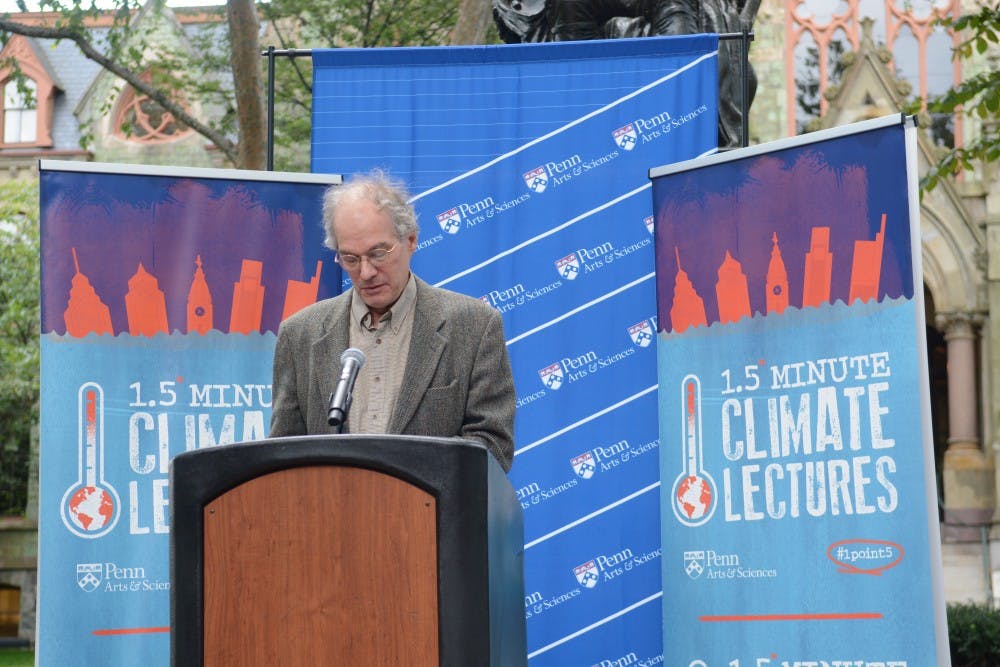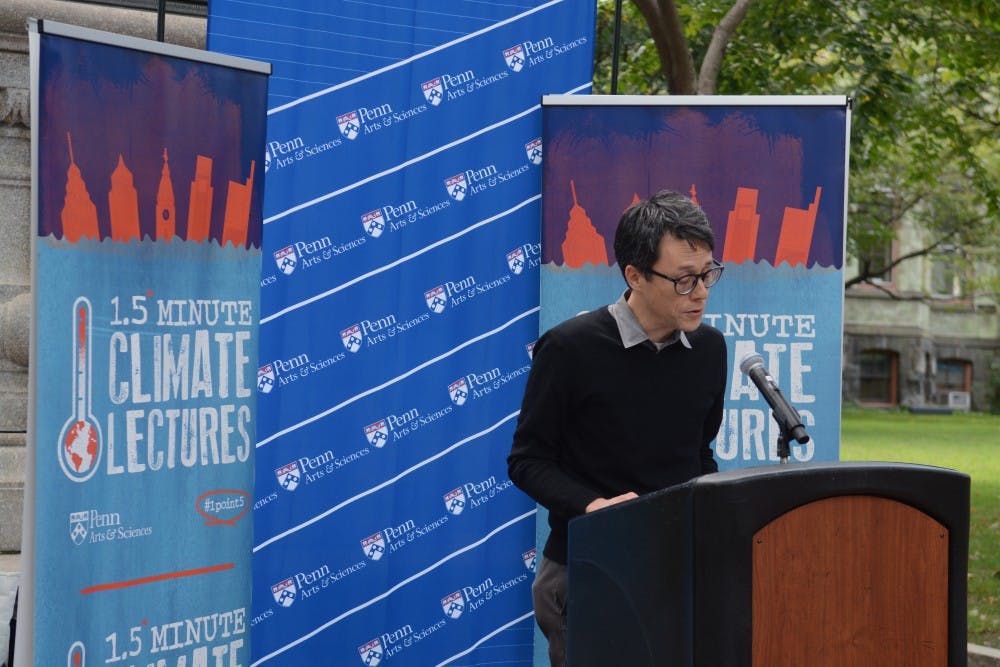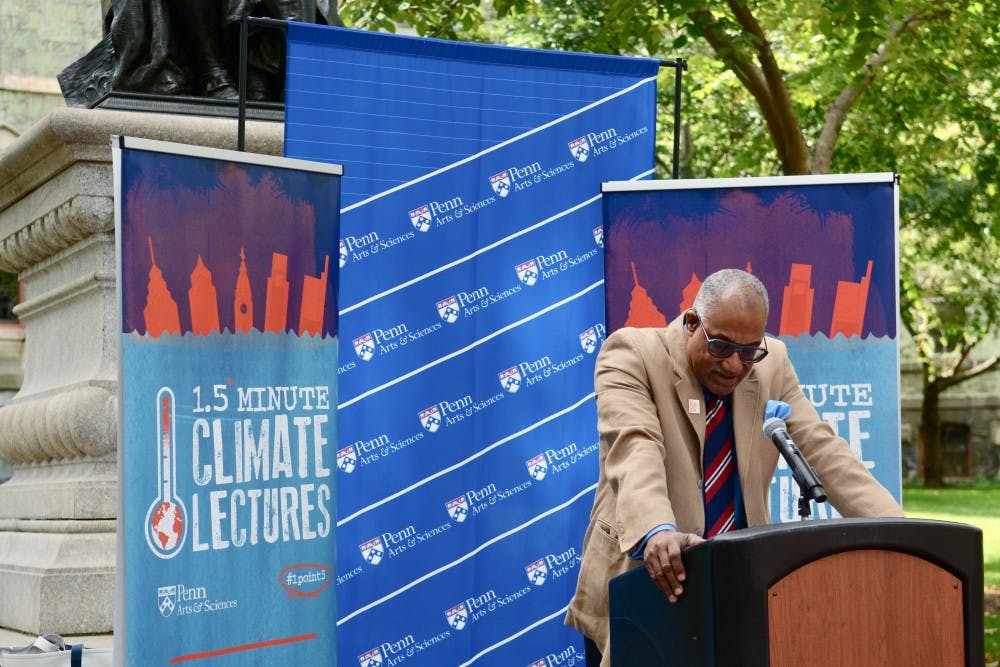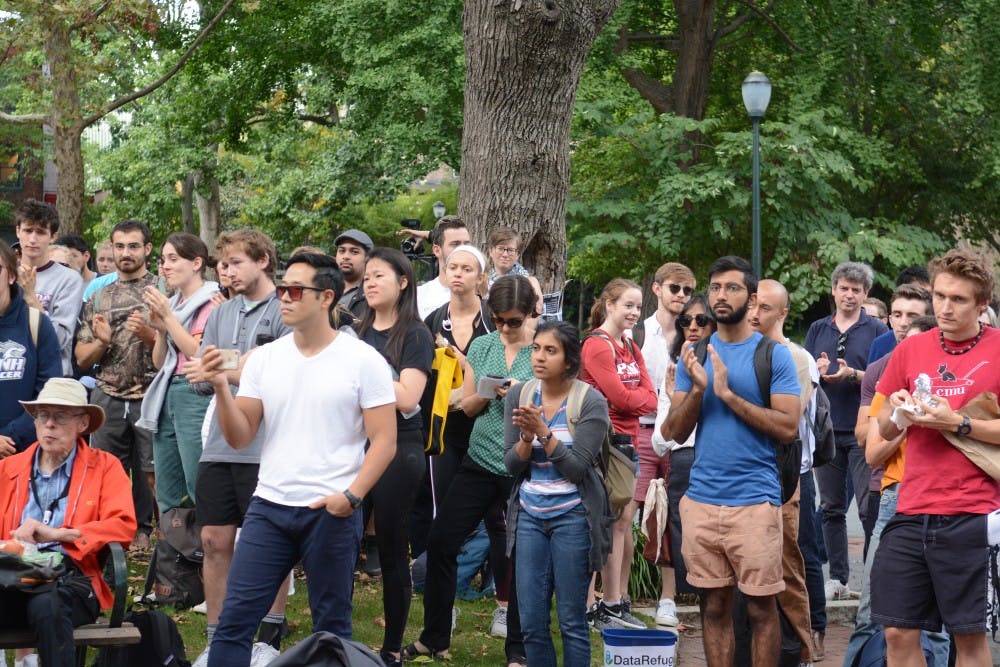
This month, the College of Arts and Sciences has organized a series of popup lectures to discuss an issue that affects students and faculty members in every discipline: climate change.
On Wednesday, five Penn professors spoke in the third installment of the 1.5* Minute Climate Lecture Series, which has been held every Wednesday this September. The series takes its name from an October 2018 report released by the Intergovernmental Panel on Climate Change, which showed there will be irreversible effects if the average global temperature rises by more than 1.5 degrees Celsius. The report estimated that temperatures have already risen by 1.0 degree Celsius.
Simon Richter, a professor of Germanic Languages and Literatures, said he came up with the idea for the lecture series after noticing there was a large gap between what scientists know about climate change and the general public’s understanding of the issue.

College Dean Paul Sniegowski
“Scientists are essentially shouting,” Richter said. “They’re waving all the red flags that they can and ringing all the alarm bells that they can, and still people are not hearing. I wanted to bridge that gap and raise awareness and start ringing alarm bells on the Penn campus.”
When planning the lectures, Richter worked with College Dean Paul Sniegowski to ensure that professors from a wide variety of disciplines were included. Many speakers addressed climate change in the context of larger social and political issues.
At the Sept. 18 lecture, English professor Paul Saint-Amour talked about humanity’s role in causing the climate crisis and the motivation of younger generations to reverse these effects. Anthropology professor Nikhil Anand argued that it's possible to change the energy industry in a lecture titled “Oil is Not Forever."

English professor Paul Saint-Amour
"Oil companies were not around 100 years ago and they will not be around in 100 years,” Anand said. “The question is, what do we do between the last 100 years and the next 100?”
Herman Beavers, an English and Africana Studies professor, discussed the relationship between climate change and gentrification at the event. Beavers emphasized the responsibility of Penn as a prestigious research university to lead the way towards sustainability on college campuses.
“[The lectures] really are sparking a conversation,” Beavers said. “People who are far away from Penn are looking at the lectures online, so something is happening and Penn is going to be in the center of it.”
Many environmentally centered clubs on campus, such as Fossil Free Penn, say the administration should take steps to make Penn a more sustainable campus. Sierra Club, an environmental organization from California, ranked Penn 100th out of 282 colleges and universities for sustainability this year.
“There’s a pent-up frustration about folks feeling that somehow, within the institution, they have not been able to do enough,” Richter said. “And a frustration that Penn is just moving incrementally, isn’t really responding with the climate action at the level that is required.”

College senior Chris Carlson, who spoke at the Wednesday event, said he hopes the lecture series will inspire Penn students to take steps to reduce their carbon footprint by consuming less meat and buying secondhand clothing. Carlson worked with Biology professor Brenda Casper and College senior Bonnie Mendelson to give a lecture entitled “Will the Mongolian Steppe Step up to Climate Change?” which was based on Casper's research in the country.
College freshman Gabriela Skovronsky, who attended the lectures, said Richter’s lecture on “The Climate Patient’s Bill of Rights” resonated with her.
“I thought [Richter] had an interesting take on the lecture,” Skovronsky said. “He included students and took a sort of slam poetry-esque style to the speech which was captivating to an audience.”

Many students and faculty attend the 1.5 minute climate lectures every week in front of College Hall.
Richter is looking into the possibility of continuing the series past September in an effort to continue the campus-wide discussions about climate change that the lectures help spark.
“We’ve opened what we hope is a conversation with the University administration,” Richter said. “I hope that the administration is listening and I hope that they realize that there are a lot of faculty members who are not happy about where the University is right now.”
The Daily Pennsylvanian is an independent, student-run newspaper. Please consider making a donation to support the coverage that shapes the University. Your generosity ensures a future of strong journalism at Penn.
Donate







